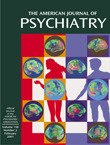To the Editor: Drs. Flint and Silveira have raised several important issues that warrant further consideration. As discussed in our study, the use of tricyclic antidepressants in the elderly should be limited to secondary amine tricyclic antidepressants, such as nortriptyline, given their favorable adverse effect profile relative to tertiary amine tricyclic antidepressants, such as amitriptyline. Unfortunately, findings from studies primarily based on tertiary amine tricyclic antidepressants are often generalized to include secondary amine tricyclic antidepressants, which may not be appropriate. The evidence for inadequate tricyclic antidepressant prescribing, to which Drs. Flint and Silveira refer, is based primarily on tertiary amine tricyclic antidepressants. These conclusions may not be generalizable, since prescribing practices may be much more favorable for secondary amine tricyclic antidepressants
(1). Furthermore, numerous studies have demonstrated that treatment with nortriptyline is not associated with a higher dropout rate than with SSRI treatment
(2).
Although we concur that SSRIs possess more favorable dosing characteristics and may be more suitable for select groups of patients, such as those with ischemic heart disease
(3), much more information is needed to determine the appropriate role of SSRIs and justify such dramatic shifts in prescribing practices. For example, recent evidence suggests that nortriptyline may be significantly more effective than fluoxetine in the treatment of poststroke depression
(4). The Danish University Antidepressant Group found better remission rates with tricyclic antidepressants than with SSRIs, raising further questions about the true efficacy of SSRIs versus tricyclic antidepressants
(5,
6). Similarly, emerging literature on the superiority of newer agents, such as venlafaxine, to SSRIs has invoked the “dual-mechanisms” explanation that is applicable to many of the tricyclic agents as well
(7). With respect to adverse events, SSRI use may be associated with a substantially greater risk of major gastrointestinal bleeding, particularly in those taking nonsteroidal anti-inflammatory drugs
(8). Although the frequency of adverse events associated with secondary amine tricyclic antidepressants and SSRIs is well documented, the burden of side effects and their longer-term, clinically relevant implications for patient well-being is poorly understood. Such issues, which may be even more relevant to an elderly population, warrant further consideration and more stringent analyses of the risks, benefits, and costs associated with treatment alternatives, rather than speculative conclusions and strong opinions.
Although clinicians have traditionally ignored the cost of medical treatment, a growing understanding that costs are indeed an important consideration in routine medical decision making is emerging. The allocation of a fixed budget, which must constantly weigh the benefits of newer and often more expensive treatments against the cost of denying other beneficial therapies, makes a strong case for judicious prescribing.

